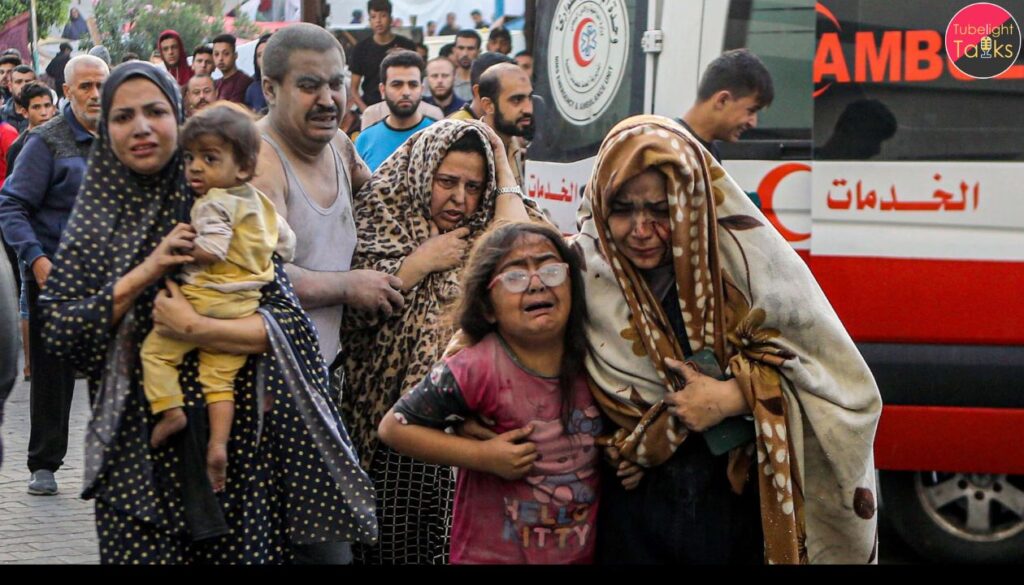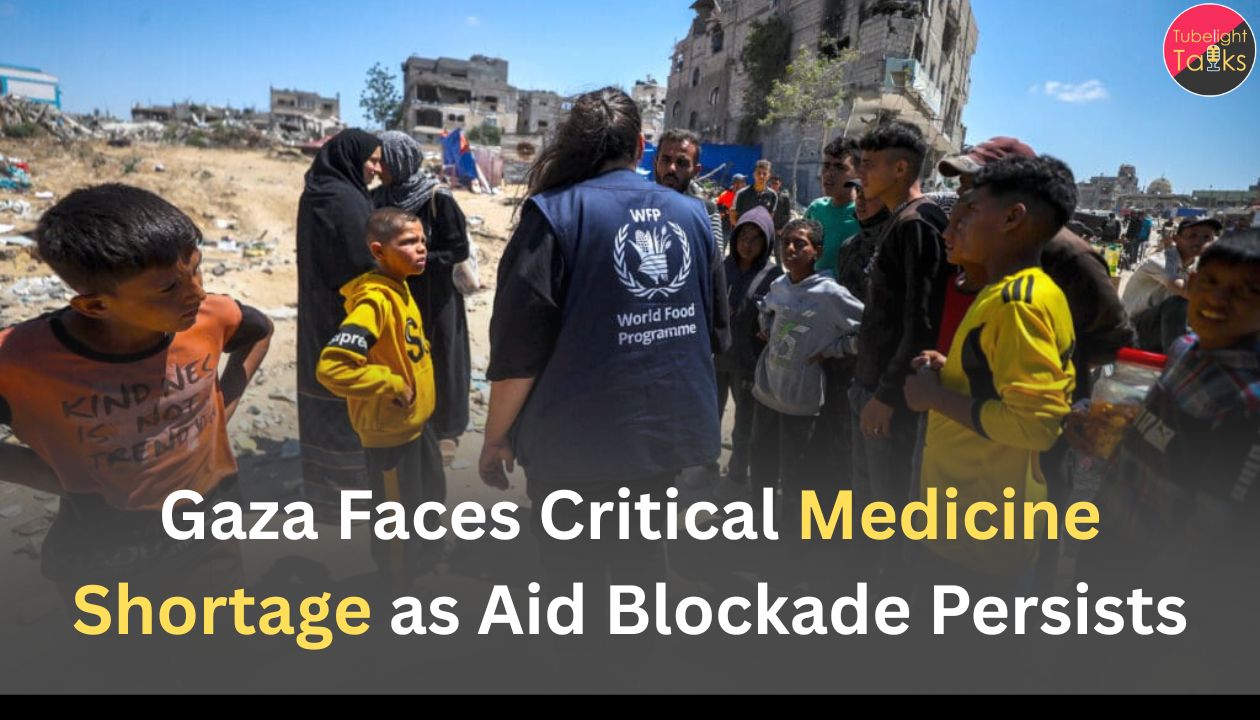Gaza Faces Critical Medicine Shortage as Aid Blockade Persists
Gaza Faces Critical Medicine Shortage: The humanitarian catastrophe in the Gaza Strip deepened this week as reports emerged of severe medicine and medical‑supply shortages, alongside fuel and logistics constraints, caused by an ongoing aid blockade. With hospitals shutting services, vaccination campaigns stalled, and children and vulnerable patients increasingly at risk, the crisis has reached a tipping point.
The Aid Blockade and Its Impact
According to the World Health Organization (WHO), the aid blockade initiated on 2 March 2025 has resulted in “life‐saving medical supplies and essential medicines” sitting outside Gaza while thousands of people are sick and dying.
Analyses show the blockade has halted deliveries of food, water, medicines and fuel, significantly weakening the health‑system infrastructure. Hospitals across Gaza have been reduced to emergency care only. WHO reported that only 19 out of 36 hospitals remain functional—and many of these lack basic supplies, power, or staff.
Medicine & Health Services in Free‑fall
A recent report found that across 14 functioning health facilities in Gaza between May and July 2025, the availability of 25 essential medicines was severely compromised.

Meanwhile, the United Nations Relief and Works Agency for Palestine Refugees in the Near East (UNRWA) stated that 1 in 5 children in Gaza has missed routine vaccinations during the war and blockade.
In such conditions, common illnesses become deadly. Nutrition, sanitation, vaccine services, and safe health infrastructure are all in collapse.
Voices from the Ground
Healthcare workers describe “impossible conditions” where hospitals lack fuel for generators, medicines for trauma, antibiotics, and basic supplies. A doctor at one major Gaza hospital noted that medicine runs out “while people are still dying.” The WHO report noted attacks on health‑care facilities and their supply chains.
What’s at Stake
- Children and pregnant women face acute malnutrition, disease, and lack of vaccination.
- Hospitals are suspended or operating at bare minimum capacity; trauma and chronic care are failing.
- The aid agency estimates that the health system is at “breaking point.”
International Response & Diplomatic Pressure
The UN and health agencies have called for unimpeded humanitarian access, lifting of the blockade, and safe corridors for supplies.
A policy shift or significant delivery increase is widely regarded as urgent to avoid full‑scale collapse of the health system.
Service to Humanity
In the midst of such suffering, the teachings of Sant Rampal Ji Maharaj remind us that human life is sacred, and that the Supreme God protects the innocent and the needy. While aid is critical, the spiritual dimension calls for compassion, service to others, and awareness that helping the vulnerable is a duty of the soul. He teaches that when we neglect the weak, we betray deeper spiritual values.
“True devotion is not in words but in service to humanity,” he says.
In Gaza, where children and the sick are suffering, these teachings offer a call to the world to act not only with policy but with heart.
What Needs to Happen Now
Immediate Actions
- Open all crossings and transport routes for aid supplies.
- Prioritise delivery of essential medicines, vaccines, fuel, and water purification equipment.
- Reinforce the remaining operational hospitals with supplies, staff and generators.
- Launch catch‑up vaccination programmes for children and pregnant women.
Also Read: Gaza Under Fire: Israeli Airstrikes Continue Despite Declared Cease-Fire
Advocacy & Awareness
- International policymakers must pressure for humanitarian access and uphold laws protecting civilians in conflict zones.
- Media and civil society should highlight the plight and support relief operations.
FAQs: Gaza Faces Critical Medicine Shortage
1. Why is Gaza facing a medicine shortage?
Because the aid blockade has prevented import of medicines, fuel and supplies necessary to run hospitals.
2. How many children have missed vaccinations?
According to UNRWA, 1 in 5 children in Gaza have missed routine vaccinations during the ongoing war and blockade.
3. How many hospitals are functional?
Only 19 of 36 hospitals in Gaza remain operational, many in minimal capacity.
4. What role do international agencies play?
Agencies like the WHO, UNRWA, and WFP are providing data, advocacy and remaining relief supplies—though their access is limited by the blockade.
5. What is the aid crisis’s humanitarian status?
According to multiple sources, nearly entire Gaza population is under “high acute food insecurity.” The medical crisis compounds this.











Discussion (0)